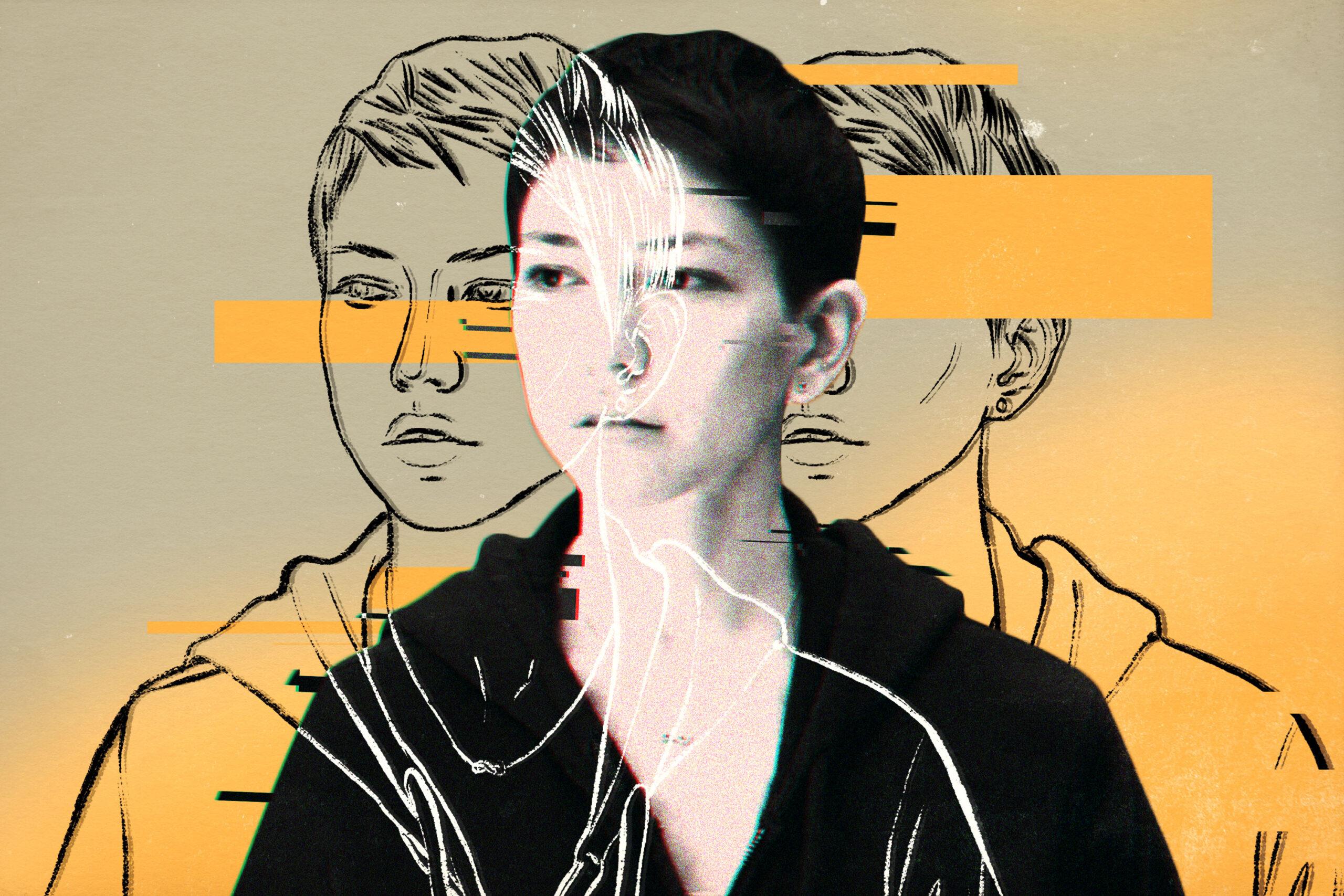

The TL;DR pitch for Devs is that it’s a miniseries predicated on the idea that humans might not have free will. As has been repeated many times on the show, we are running on invisible “tram lines” in a deterministic world. I’d argue that this notion doesn’t sit well with most people—we certainly want to at least have the illusion of choice, even if it doesn’t exist. (OK, time to put down the bong.) Predeterminism is supposed to be an unsettling philosophy, but in ways that the eponymous quantum computing system at the heart of Devs couldn’t have predicted, the idea of a system that can tell you everything about the past, present, and future might seem kind of appealing right now.
Devs premiered on March 5—or what feels like 20 years ago, given how much the state of the world has changed in the past month-plus. When Devs debuted social distancing still wasn’t widespread, movies were still hitting theaters, and the NBA hadn’t suspended its season, and ever since, the COVID-19 pandemic has tightened its grip on every part of society. In the midst of so much stress and uncertainty, the thought of knowing when things will end and we can return to some sense of normalcy is appealing. But on Devs, we see that knowing what will happen, but still having no power to change paths, is its own sort of hell.
For the characters on writer-director Alex Garland’s series who have worked on the Devs system, the technology has provided them mind-blowing glimpses of historical events through the prism of its predictive algorithm; they’ve seen Jesus on the cross, cavemen sitting by a fire, and Marilyn Monroe having sex with Arthur Miller. (All equally important, clearly.) But some of the characters—namely Nick Offerman’s creepy, unkempt tech CEO Forest and Alison Pill’s Katie, his right-hand woman—committed the cardinal sin of peering into their own futures. In a meta sense, they’ve been looking at spoilers for their own show; or as Forest says in Thursday’s finale, “Life is only something we watch unfold, like pictures on a screen.” Whoa.
Heading into the finale, Forest is already aware that Lily (Sonoya Mizuno) is going to kill him, and that she’ll also die—and that from that point on, the Devs system is no longer able to predict the future, leaving the events after Forest’s murder as an unknown quantity. But as effective as Devs is as a philosophical mindfuck that might make you Google concepts like the many-worlds theory of quantum mechanics, it hasn’t done nearly as good a job of making you care about its characters.
The emotional core of the series is Lily trying to find out the truth behind her boyfriend’s mysterious death on the same day he was invited by Forest to join his company’s secretive Devs department, and Forest’s own ambitions to use the system to reunite with his late daughter, Amaya. Grief, in other words, is supposed to be the driving force behind the show. But Devs leans on philosophical brainteasers without bothering to build characters that evoke empathy or interest. They’re also hampered by dialogue and a flat delivery that has the bizarre effect of making them barely seem human.
Perhaps the robotic behavior of the characters on Devs is a point unto itself: Everyone on the show is either immersed in the world of tech or of corporate espionage, so Garland is implying that their lifestyles have the adverse effect of corroding their souls. (That would certainly fall in line with some of the unsettling characters the auteur brought to life in his excellent feature films, Ex Machina and Annihilation.) And that’s fine! It would be a coherent choice if Devs kept this vibe going throughout the entire series—as a creepy, cold, Kubrickian exercise in style with some thought-provoking ideas that belong in college seminars and stoners’ basements. But the show’s finale is aiming for the kind of emotional closure that, I would argue, isn’t the series’ strong suit—and misses what made Devs appealing in the first place.
The reason the Devs system isn’t able to make predictions beyond Lily’s actions is because she diverges from her predetermined path—instead of shooting Forest with a gun in Devs’ creepily elegant floating elevator, she tosses it aside. (This sequence would be hilarious to watch sans context, as everyone in the scene is freaking out that someone isn’t about to commit murder.) Instead, Devs team member Stewart (Stephen McKinley Henderson) shuts down the elevator, sending both Forest and Lily careening to their deaths. But in death, the two characters have a rebirth of sorts, courtesy of a Devs simulation of reality that is indistinguishable from the real world. Essentially, their consciousnesses have been reverse-Matrix’d.
The Matrix is an interesting comparison point, if only because of what the Devs simulation represents for Forest and Lily. In the Wachowskis’ seminal film, Nebuchadnezzar crew member Cypher infamously sides with the machines, preferring to live large in an artificial world rather than fight for survival in the real one. “Ignorance is bliss,” he says, biting into a delicious-yet-fake piece of steak. The key to Cypher’s arrangement with the machines is that they’d wipe his memory so he’d have no recollection of betraying his kind or opting into the simulated reality. Because knowing that you’re inside the Matrix would be not unlike knowing what would happen in your future; it would be hell to fully comprehend your lack of control.
And yet, as we watch Lily come to terms with her new reality, where her boyfriend Sergei (Karl Glusman) is alive and things are back to “normal,” she knows something is off. She finds Forest, back with his daughter and wife, and he explains that they are inside of Devs. It’s a secret known only to them—and in another brainy twist, Forest says the many-worlds theory exists within the system itself. There are other simulations, and other Forests and Lilys—this is just one of their many new realities. Whoa again. “You get used to it,” he says to her. I have a hard time believing that’s true.
While in interviews Garland says he views the possibility of determinism as a “kind, generous, or forgiving way of looking at the world,” and he makes some compelling points, there’s a difference between knowing what will happen and knowing what’s happening isn’t real. Garland’s series ends with not only the implication that Forest is happy in this simulated world—which somewhat makes sense given how much grief drove the character’s efforts at his company so that he could see his daughter again—but that Lily will also find contentment within the system. The final moments of Devs sees Lily embrace Jamie (Jin Ha), her sweet, dutiful ex-boyfriend whom she falls in love with over the course of the series. Never mind that this is a simulation; Lily will, as Forest said, get used to it.
Unfortunately, I don’t buy it—as either a philosophical exercise or as an emotional journey, because Devs just hasn’t built a strong enough foundation for its characters hamstrung by wooden, stilted dialogue. I never really got a sense of Lily as a person; same for Katie, Stewart, Jamie, Sergei, and anyone other than Forest, whose single-minded drive was hauntingly rendered by Offerman’s terrific performance. (The company’s creepy head of security, played by Zach Grenier, was also great in a menacing, Old Guy Who’d School You in a Pickup Game at the Y By Playing Dirty sort of way.) The only reason Lily accepting life in a simulated reality seems plausible is because she barely felt human to begin with.
This might seem overly critical, but I’m only being harsh because Garland projects should be graded on a curve since he’s established himself as one of the most exciting minds working in science fiction. I would still recommend Devs before most television shows I’ve seen so far this year—with notable exceptions like Better Call Saul, The New Pope, and ZeroZeroZero—but as good as Garland was at establishing a creepily captivating tone and aesthetic, it’s hard to overlook the show’s weak dialogue when it aims for an emotionally driven coda. Revisiting Garland’s features, both of which were among the best films of their respective years, it’s perhaps telling that the first thing that comes to mind when praising these projects probably isn’t dialogue. Likewise, it’s instructive that the alien encounter in Annihilation—arguably one of the most thrilling, unnerving sequences from the past decade in film—didn’t require words to convey deep meaning and emotional weight.
Since Devs is the first of what seems likely to be many forays on the small screen for Garland—the issues the auteur had with Paramount Pictures over Annihilation’s release would indicate his immediate future is in television—it makes sense that it’s not perfect. Better dialogue would’ve better served the characters on the series, and the performances of the actors, while the premise began to stretch thin at eight episodes. (Ironically, Devs might’ve worked better as a feature film.) But despite its flaws, Devs was still something to behold: an unsettling, symphonic, indulgent trip that swung for the fences while gleefully channeling Kubrick. If that is Alex Garland’s equivalent of a slump, well, I’m certainly predetermined to find out what he does next.

